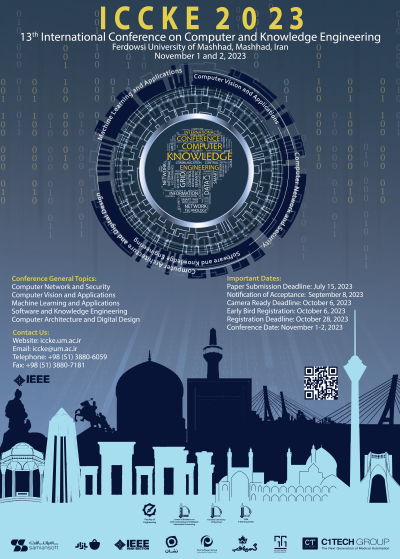0% Complete

Authors :
Keywords :
Abstract :
List of archived papers
Fatemeh Zahra Arshia - Saeedeh Sadat Sadidpour
Mohammad Sajad Kasaei - Mohammadreza Sharbaf - Afsaneh Fatemi - Bahman Zamani
Hoda Shad - Mona Zamiri - Tahereh Bahreini - Reza Monsefi - Ghoshe Abed Hodtani
Ali Salimi Sadr - Mahdi Shahbazi Khojasteh - Hamed Malek - Armin Salimi-Badr
Javad Mirzapour Kaleybar - Hooman Khaloo - Avaz Naghipour
Mohammad Kazemi - AhmadReza Montazerolghaem
Amirhossein Ghaemi - Habibollah Danyali - Alireza Ghaemi
Avisa Fallah - Ali Keramati - Mohammad Ali Nazari - Fatemeh Sadat Mirfazeli
Amin Kazempour - Jafar Tanha
Zohreh Torki - S.Mojtaba Matinkhah




